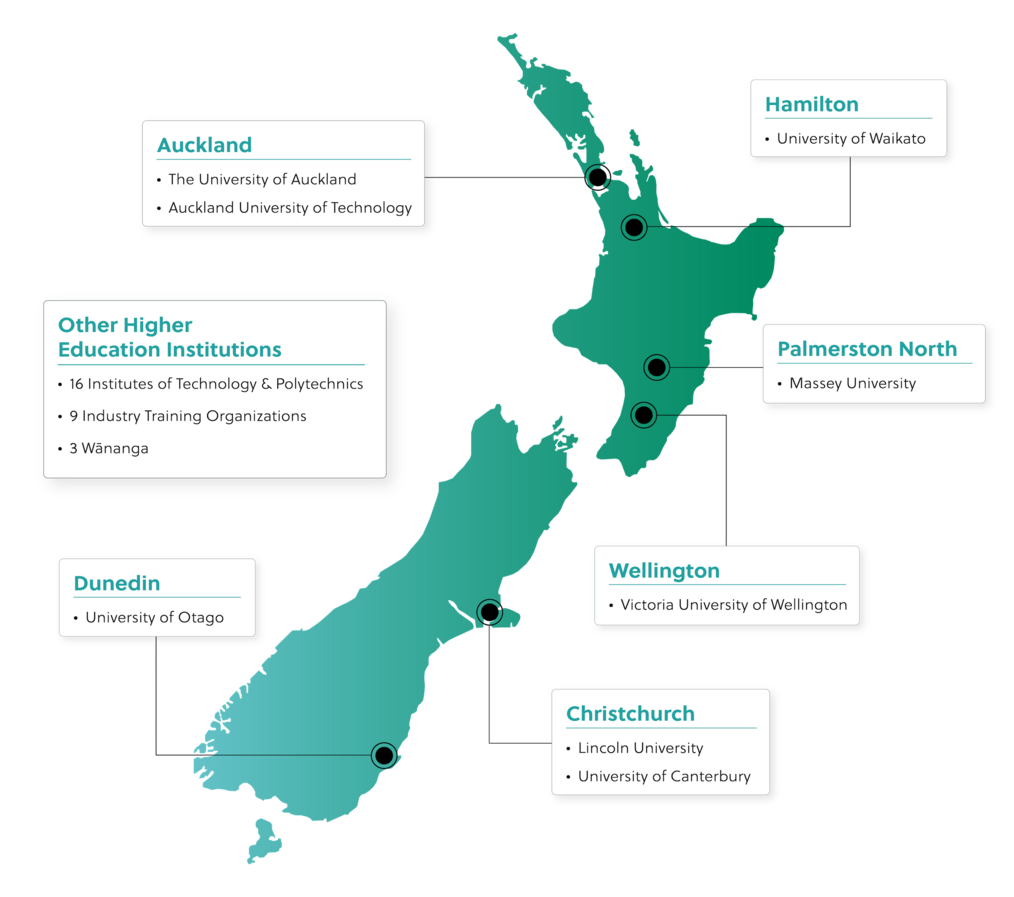
What does BIPOC mean?
BIPOC is an acronym that stands for “Black, Indigenous, and People of Color.” BIPOC is a term specific to the US, emphasizing the collective experiences of Black and Indigenous people and representing solidarity between communities of color.
The BIPOC student experience
Using the term BIPOC recognizes that Black and Indigenous students are impacted by systemic racial injustice. Not all People of Color share that same experience, but the term does acknowledge that they face varying types of discrimination and prejudice.

Why Aotearoa New Zealand is a Top Study Abroad Destination for BIPOC Students
Aotearoa New Zealand is a welcoming and friendly country with a rich bicultural heritage, stunning landscapes, and a world-class education system. Their education system honors the Treaty of Waitangi, encouraging cultural belonging for all students in the classroom and incorporating a curriculum that shares Māori culture, history, and voices to foster cultural understanding. In addition, all 8 of the universities in Aotearoa New Zealand are ranked in the top 3% of universities worldwide, making it an ideal study abroad destination for academic and professional success.

Where can I study abroad in NZ?

Why Study in New Zealand?
How to apply
1. Start your application
2. Tell us why you want to study in New Zealand
3. Apply to the institution(s) of your choice
Frequently asked questions
-
How do I apply to study abroad in New Zealand?
Each university has their own requirements. To apply to study in New Zealand, you’ll generally need to complete the application form, submit academic transcripts and a copy of your passport, and provide evidence that you meet their English language requirements. For some programs, an interview and portfolio may also be required.
-
Do I need a visa to study in New Zealand?
Yes, you will need a student visa if you plan to study full time in New Zealand for more than 3 months.
-
Can I still study abroad in New Zealand if I don't have a passport?
No. You must have a signed, valid passport from your country of citizenship and it must be valid for at least six months after the end date of your study program.
-
What is the official language of New Zealand?
There are three official languages in New Zealand: English, Māori (te reo Māori), and New Zealand sign language.
-
How much is tuition in New Zealand?
An average undergraduate (bachelor) degree costs between $13,000 USD - $17,000 USD a year.
Related Content -
What is the most diverse city in New Zealand?
Auckland, Wellington, and Christchurch are 3 major cities in New Zealand with growing multicultural populations. Many residents in these cities are Māori, Asian, non-Māori Pacific Islander, European descent, and among other ethnicities.
-
Is New Zealand safe for BIPOC folks?
New Zealand is rich in Māori culture and traditions, welcomes diversity, and is a leader in peacekeeping, ranking 4th in the world on the Global Peace Index.
It is still important to note that racism and discrimination can exist in any part of the world and attitudes may vary in different regions of New Zealand. However, New Zealand has established anti-discrimination laws to protect BIPOC folks.
-
Why study abroad in New Zealand?
As a student in New Zealand, you’ll have the unique opportunity to learn about the history and stories of the Māori, the indigenous people of New Zealand. New Zealand also boats highly-ranked, globally-recognized universities.
Related Content -
Is New Zealand welcoming to Indigenous students from other countries?
Universities in New Zealand welcome Indigenous students from across the globe and encourage them to connect with the Maori community. Specific exchange programs, like the short-term program offered at the University of Waikato, are tailored to Indigenous students to offer an exploration of identity and cultural immersion abroad.
-
What are some concerns Indigenous students might have before studying abroad in New Zealand?
Indigenous students may wish to reach out to their host university or program provider to learn about class offerings that explore Indigenous culture and heritage, as well as how those topics are presented. Due to the painful and sensitive nature of many topics, you can also inquire about the type of support available for Indigenous students while abroad. Don’t be afraid to ask questions. University staff want you to feel comfortable and confident in your study abroad program.





